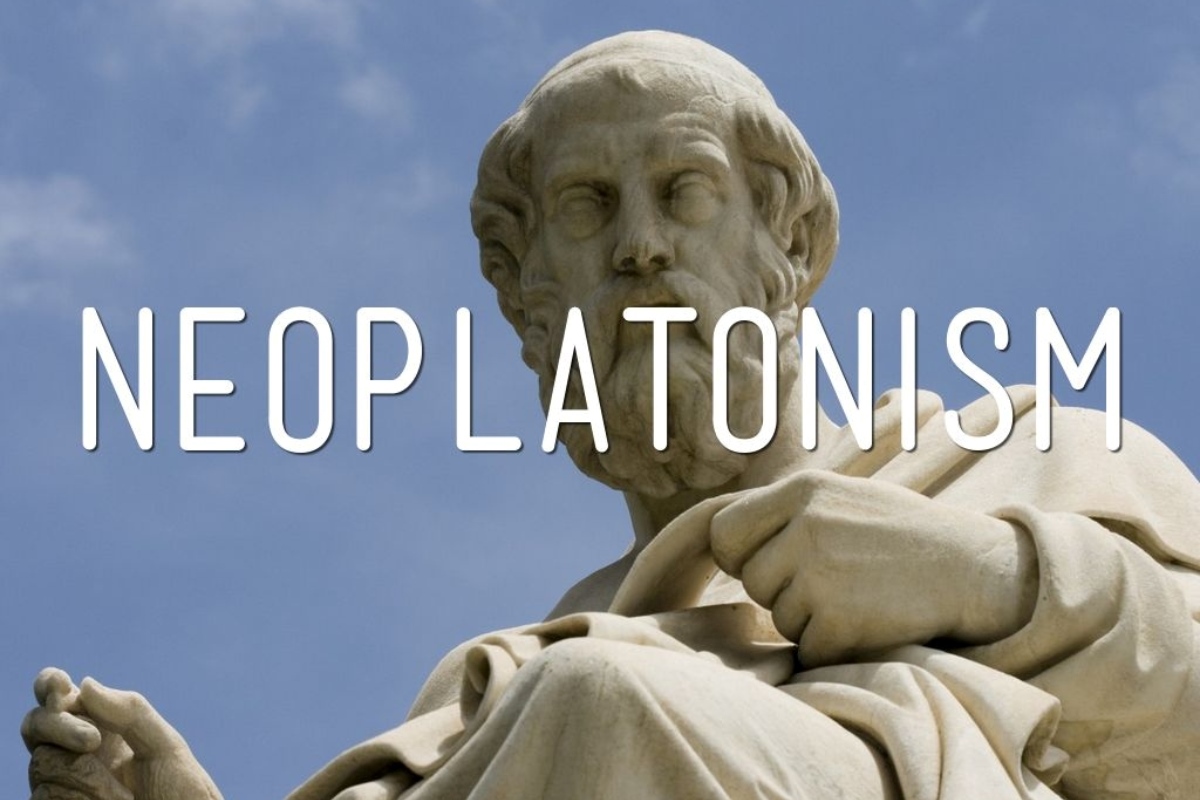Home>Christian Resources>The Influence Of Religion On Education


Christian Resources
The Influence Of Religion On Education
Published: October 27, 2023
Ericka Andersen, an editor at Christian.net, expertly merges digital strategy with content creation, focusing on faith and societal issues. Her communication skills enhance the platform's engaging narratives, fostering meaningful dialogue on belief's impact on society.
Discover how various religious traditions and belief systems have impacted education throughout history. From the establishment of religious schools to debates over faith and public schooling, this examination explores the relationship between religion and learning.
(Many of the links in this article redirect to a specific reviewed product. Your purchase of these products through affiliate links helps to generate commission for Christian.net, at no extra cost. Learn more)
Religion has played a profound and enduring role in shaping societies, influencing individuals, and guiding moral and ethical principles throughout history. One sphere where the impact of religion is particularly significant is education. The relationship between religion and education has been a subject of extensive debate, with various religious traditions and belief systems shaping curricula, values, and educational institutions. This article will delve into the complex influence of religion on education, exploring the historical, cultural, and contemporary aspects of this complex and often contentious connection. From the establishment of religious schools to the ongoing debates over the place of religion in public education, this examination seeks to shed light on the link between faith and learning.
1. Curricular Content and Values
In education, religion’s sway is unmistakably evident, primarily manifesting through the structure of curricula and the values instilled within various educational institutions. Schools affiliated with specific faiths intricately weave religious texts and teachings into their academic programs.
For instance, Christian schools commonly integrate the Bible into their curriculum, influencing theological studies and permeating subjects like literature, history, and ethics. By incorporating scriptural teachings, these institutions disseminate religious knowledge and espouse the moral and ethical values intertwined with the Christian faith. Correspondingly, Islamic schools, or madrasas, center their teachings on the Quran and Hadith, interweaving Islamic principles into the fabric of everyday subjects to cultivate a profound understanding of their faith among students.
Nevertheless, the impact of religion extends beyond faith-based educational establishments, permeating public education systems as well. Within the United States, the contentious discourse surrounding the inclusion of evolution in public school curricula underscores the profound influence of religious beliefs.
The divergence between the scientific theory of evolution and the creationist standpoint, which asserts divine creation as the origin of life and the universe, underscores the significant role of religious convictions in shaping the biology curriculum. This ongoing struggle between matters of faith and scientific exploration signifies that even secular educational frameworks are not entirely immune to the pervasive influence of religion.
Students often grapple with intricate assignments that necessitate comprehensive understanding and critical analysis in this dynamic educational landscape. With the emergence of educational support platforms such as https://thesisgeek.com/dissertation-writing-service.php, providing adept guidance and assistance with academic tasks, learners can avail themselves of the necessary expertise and resources to navigate the complexities of their coursework effectively. Such accessible academic support empowers students to engage more deeply with the interplay between religious influence and educational content, fostering a more nuanced and enriched educational experience.
Read more: Pros and Cons of Religion Education
2. Values and Morality
Religion plays a central role in shaping values and moral frameworks, and this influence naturally extends to education. Religious teachings frequently emphasize principles of compassion, forgiveness, and social justice, all of which can find their way into school environments.
For instance, Christian educational institutions may stress the importance of charity and community service, encouraging students to live out the principles of their faith. Similarly, in many Islamic schools, a strong emphasis is placed on moral conduct, honesty, and kindness to others, as Islamic teachings prescribe. This focus on ethics and morality serves to develop well-rounded individuals who embody the virtues of their faith.
Furthermore, religious traditions often guide behavior through codes of conduct. For example, Catholic schools frequently have codes of conduct encompassing issues like modesty, respectful language, and abstinence from certain behaviors. These rules reflect religious values and are enforced to create a distinctive educational environment consistent with those values. In this way, religion directly influences students’ conduct and character development in various educational settings.
3. School Governance and Policies
Religion can influence education by shaping the governance and policies of educational institutions. Faith-based schools, common in many countries, are often subject to the religious authority overseeing them. For example, in India, a diverse country with a rich tapestry of religious traditions, many schools are managed by religious organizations, and these institutions often align their policies and practices with the religious principles of the overseeing body. This governance can extend to dress codes, dietary restrictions, and even hiring practices, all influenced by religious values.
In the United States, where the separation of church and state is a fundamental principle, religion still shapes educational policies. Controversies surrounding issues like prayer in schools, the teaching of sex education, or LGBTQ+ rights illustrate how religious beliefs can impact public school policies, leading to debates and legal battles. The balance between respecting individual religious freedoms and adhering to the principles of secular education remains a challenging and ever-evolving issue.
4. Cultural and Historical Perspectives
Education often encompasses transmitting cultural and historical knowledge, and religion is a vital component. Religious beliefs and traditions have deeply influenced historical events, art, literature, and societal norms. When students learn about history or culture, they are inevitably exposed to the role of religion in shaping the world. For instance, in history classes, students often encounter the impact of the Reformation on Europe, the Crusades in the Middle Ages, or the role of Hinduism in Indian history.
Furthermore, religious narratives and symbolism are integral to understanding art and literature. Iconic works of art, such as the Sistine Chapel ceiling by Michelangelo or the intricate calligraphy of Islamic art, are deeply rooted in religious themes and motifs. Literature, too, is replete with religious allegories and references. In this way, religion influences the content of education and enriches the cultural and historical perspectives that students gain.
5. Social Cohesion and Identity
Education is a critical factor in shaping an individual’s identity, and religion often plays a significant role in this process. Many individuals identify strongly with their faith, and religious education can reinforce their religious identity. In faith-based schools, students are exposed to religious teachings and interact with a peer group that shares their faith, which can foster a sense of belonging and strengthen religious identity. In such environments, religion becomes a core part of the individual’s sense of self.
Moreover, religious education can promote social cohesion by encouraging interfaith dialogue and understanding. In diverse societies, schools can serve as a platform for promoting tolerance and cooperation among different religious groups. Programs that teach about various world religions can help students appreciate the diversity of belief systems and foster mutual respect, which is vital in a globalized world characterized by religious diversity.
Controversies and Challenges
The influence of religion on education is not without its controversies and challenges. One major issue is the tension between religious freedom and the principles of secular education. In countries like France, there is a strong emphasis on the secular nature of public education, leading to conflicts with individuals who wish to express their religious identity, such as Muslim students wearing headscarves. These controversies highlight the complexities of accommodating diverse religious beliefs within a single educational system.
Furthermore, the role of religion in education can sometimes lead to exclusion or discrimination. LGBTQ+ students, for instance, may face discrimination in religious schools that uphold traditional interpretations of scripture. Similarly, the scientific integrity of education can be compromised when religious beliefs challenge well-established scientific theories like evolution or climate change. Navigating these contentious issues requires a delicate balance between respecting individual religious freedoms and upholding the principles of a secular, inclusive, and evidence-based education system.
Impact on Global Perspectives
Religion significantly influences how individuals perceive and engage with global issues. Through religious education, students often gain insights into the religious dimensions of global conflicts, humanitarian crises, and social justice movements. Understanding religious perspectives can foster empathy and a nuanced understanding of global events’ cultural and ideological underpinnings.
Moreover, religious institutions often engage in international philanthropic efforts and missionary work, impacting education globally. Missionary schools and charitable organizations run by religious groups contribute to educational initiatives in developing countries, providing access to education and shaping the educational landscape in these regions.
Conversely, religious differences can also be a source of conflict in the global arena, leading to geopolitical tensions and ideological clashes. Understanding the role of religion in global affairs is crucial for fostering diplomacy, intercultural understanding, and peaceful coexistence in an increasingly interconnected world. Educational initiatives that promote global awareness and religious literacy can play a vital role in nurturing a more inclusive and harmonious global community.
Conclusion
In the complex interplay between religion and education, the undeniable influence of religious beliefs pervades every facet of the educational landscape. From shaping curricula, teaching moral values, guiding school policies, and fostering cultural understanding, religion remains integral in developing individuals and societies. While it fosters identity formation and social cohesion, it challenges inclusivity, scientific integrity, and the balance between religious freedom and secular education. Beyond local contexts, its impact reverberates globally, influencing humanitarian efforts, shaping educational initiatives, and, at times, fueling ideological tensions. Understanding and navigating this intricate relationship is crucial for nurturing a more harmonious and inclusive educational environment that honors the diverse beliefs and perspectives that enrich our shared human experience.














